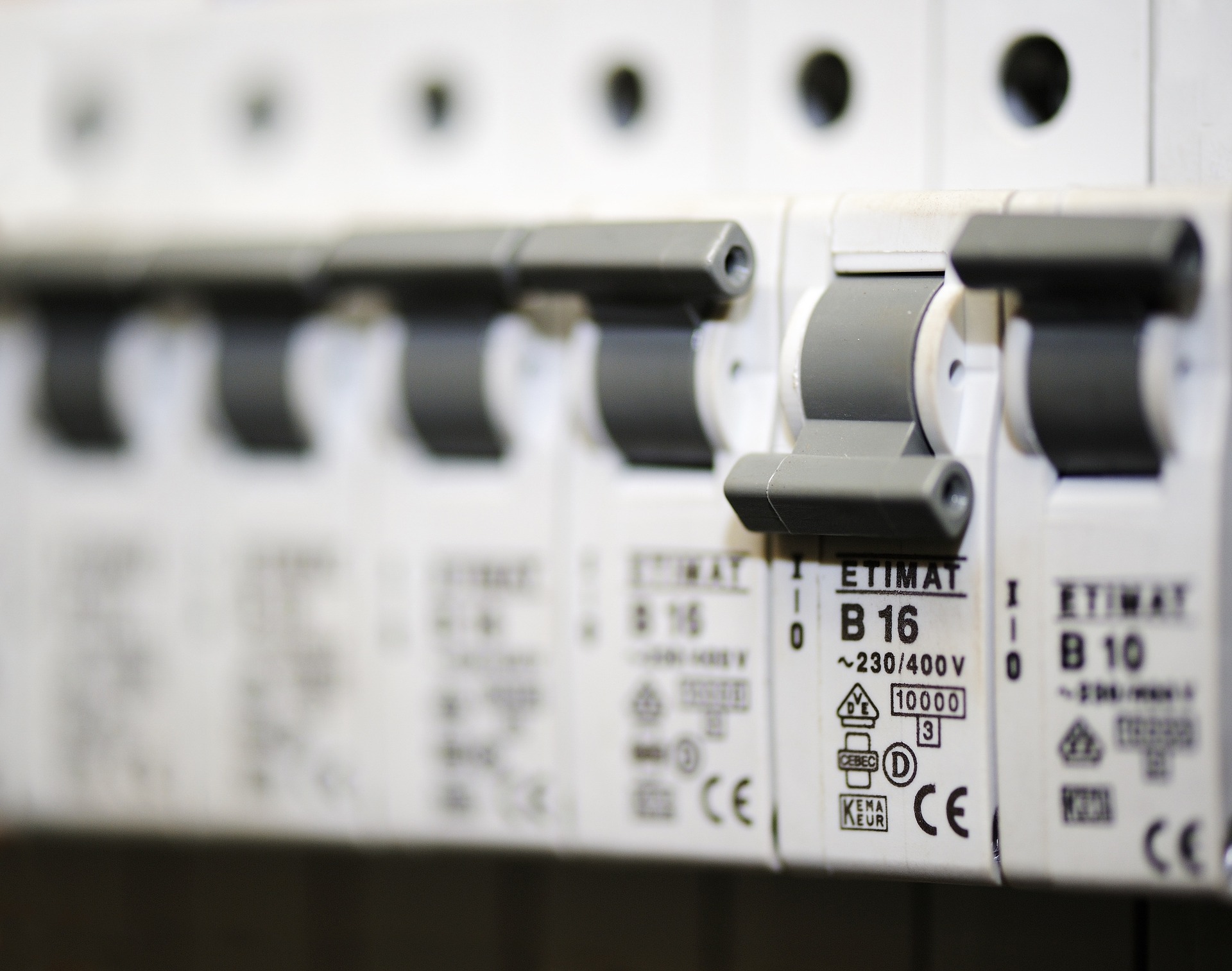We’ve all experienced the annoyance of using a microwave or hairdryer, and suddenly the power to the entire room goes out. This means you need to stop what you are doing and take a walk a trip to the garage or utility room to find out which of the breakers has been tripped. Flipped breakers aren’t that uncommon, but figuring out the cause is essential. The reason the breaker tripped could be something mundane, but also might be a sign of something more serious, especially if the same breaker trips constantly.
Overloaded Circuits: Most of the time, a breaker is tripped because the circuit is overloaded. A house has many circuits that power individual sections of the home. Usually, each room is on its own circuit, but sometimes a large room gets divided into sections. You may have one circuit powering the outlets in the kitchen but a separate one for the refrigerator or overhead lights. The circuits can handle a certain amount of power. Still, sometimes you can overdraw the energy when you have multiple large appliances plugged into a single outlet or use a power strip to plug in many devices at once. When the circuit gets overloaded, it begins to heat more than usual; after passing a certain temperature threshold, a spring-loaded mechanism forces the breaker to turn off. If your circuits often trip, your electrical system may be overwhelmed. Adding more outlets or upgrading your circuit panel should fix the issue.
Short Circuits: When a wire receiving electricity touches a neutral wire, a sudden surge of heat immediately triggers the breaker to flip OFF. Short circuits happen because of old, damaged, or improperly connected wires. If you pick up a burning smell or any discoloration when you visit the circuit panel, it’s likely one of the wires is shorting. Call an electrician to remedy the issue ASAP since short-circuiting is a considerable fire hazard.
Arc-Faults: Another abnormality that can happen is electricity arcing from one wire to another. If the insulation on some wires breaks down or the screw terminals are loose, electricity can leap from one wire to another. The subsequent spark can ignite surrounding materials, so power must be cut as soon as possible. With an arc-fault circuit interrupter (AFCI), this kind of problem is caught early. These units are similar to ground-fault circuit interrupters (GFCIs), which are triggered when water comes into contact with an electrical socket. The National Electrical Code calls for AFCIs to be installed on anything with more than 15-20 amps – which represents most outlets in residential homes.
Old or Damaged Circuit Breaker Box: Homes with electrical systems more than 30 years old are in need of rewiring and panel upgrades. When circuit panels get old, they become more sensitive and can trip breakers even though the circuit is not overloaded. Wires can also become corroded over many years, and insulation can degrade. If you’ve got an old system, have an electrician inspect it and prescribe the appropriate repairs.
Malfunctioning circuits or corroded wiring are serious issues that demand the attention of a professional electrician. The Sarasota team of master electricians at Promise Electric is here to help you repair your infrastructure and keep your home safe. Call today for more information and to set up an appointment for your inspection.



